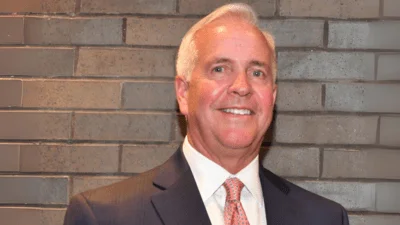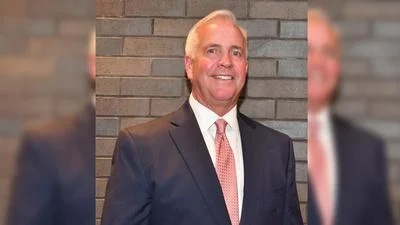Patrick Sheehan, Illinois State Representative for 37th District | https://www.ilga.gov/house/Rep.asp?MemberID=3260
Patrick Sheehan, Illinois State Representative for 37th District | https://www.ilga.gov/house/Rep.asp?MemberID=3260
According to the Illinois General Assembly site, the legislature summarized the bill's official text as follows: "Amends the Illinois Income Tax Act. Creates an income tax credit for each individual who (i) serves as a first responder for at least 10 months during the taxable year and (ii) incurs unreimbursed qualified wellness expenses during the taxable year. Provides that the amount of the credit is equal to 50% of the unreimbursed qualified wellness expenses incurred by the taxpayer during the taxable year, up to a maximum of $250 per eligible taxpayer. Sets forth limitations on the aggregate amount of credits that may be awarded under the amendatory Act. Effective immediately."
The following is our breakdown, based on the actual bill text, and may include interpretation to clarify its provisions.
In essence, this bill amends the Illinois Income Tax Act to establish an income tax credit for first responders who serve at least 10 months in a taxable year and incur unreimbursed qualified wellness expenses. For tax years starting on or after Jan. 1, 2026, and before Jan. 1, 2031, eligible individuals can receive a credit equal to 50% of these expenses, capped at $250 per taxpayer annually. The aggregate amount available annually for credits is $2.5 million, awarded on a first-come, first-served basis. If a credit surpasses tax liability, it may be carried forward for up to five years. Qualified expenses include fitness center memberships, wellness classes, and personal training programs. The Department of Revenue is tasked with implementing rules for this credit, effective immediately upon enactment.
Patrick Sheehan has proposed one other bill since the beginning of the 104th session.
Patrick Sheehan is currently serving in the Illinois State House, representing the state's 37th House District. He replaced previous state representative Tim Ozinga in 2024.
Bills in Illinois follow a multi-step legislative process, beginning with introduction in either the House or Senate, followed by committee review, floor debates, and votes in both chambers before reaching the governor for approval or veto. The General Assembly operates on a biennial schedule, and while typically thousands of bills are introduced each session, only a fraction successfully pass through the process to become law.
You can read more about bills and other measures here.
| Bill Number | Date Introduced | Short Description |
|---|---|---|
| HB1634 | 01/23/2025 | Amends the Illinois Income Tax Act. Creates an income tax credit for each individual who (i) serves as a first responder for at least 10 months during the taxable year and (ii) incurs unreimbursed qualified wellness expenses during the taxable year. Provides that the amount of the credit is equal to 50% of the unreimbursed qualified wellness expenses incurred by the taxpayer during the taxable year, up to a maximum of $250 per eligible taxpayer. Sets forth limitations on the aggregate amount of credits that may be awarded under the amendatory Act. Effective immediately. |
| HB1104 | 01/09/2025 | Amends the Decennial Committees on Local Government Efficiency Act. Provides that a governmental unit may form a committee (rather than must form a committee) to study local efficiencies and report recommendations regarding efficiencies and increased accountability to the county board in which the governmental unit is located. |






 Alerts Sign-up
Alerts Sign-up